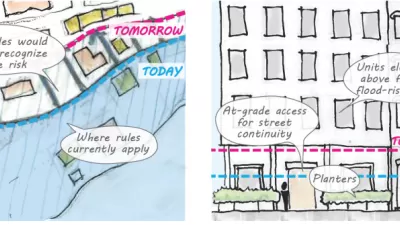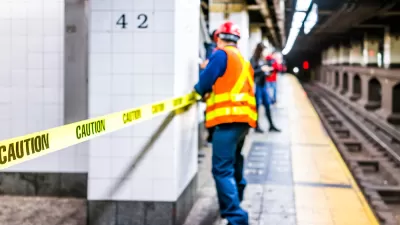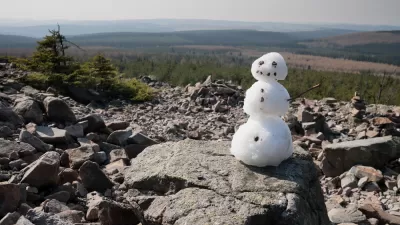After years of climate change denial by conservatives and muzzling by liberals, Superstorm Sandy made abundantly clear the economic costs of inaction. Will that be enough to spur political action?

Tina Rosenberg looks at the shifting winds of the climate change debate, as the United States, one of the only countries that can actually lead global efforts to help reduce greenhouse gas emissions but has generally dithered on doing anything, is now confronted with its effects, and costs. Could Sandy "be a fix for the lack of political will to do something about [climate change]"?
"Until this year, the political calculus about climate change had only one side. The oil and coal companies made sure everyone knew about the costs of action. But few people mentioned the costs of inaction. Now they cannot be ignored," says Rosenberg.
"What Hurricane Sandy has made plain is that there is a balance. We're already paying for climate change, and that tax is only going to rise. Advocates for action can make the same argument as those who mock climate change: to do nothing is to be anti-jobs, anti-growth, anti-American values."
FULL STORY: A Change in the Weather on Wall Street

Manufactured Crisis: Losing the Nation’s Largest Source of Unsubsidized Affordable Housing
Manufactured housing communities have long been an affordable housing option for millions of people living in the U.S., but that affordability is disappearing rapidly. How did we get here?

Americans May Be Stuck — But Why?
Americans are moving a lot less than they once did, and that is a problem. While Yoni Applebaum, in his highly-publicized article Stuck, gets the reasons badly wrong, it's still important to ask: why are we moving so much less than before?

Using Old Oil and Gas Wells for Green Energy Storage
Penn State researchers have found that repurposing abandoned oil and gas wells for geothermal-assisted compressed-air energy storage can boost efficiency, reduce environmental risks, and support clean energy and job transitions.

Minneapolis Bans Rent-Setting Software
Four cities have enacted restrictions on algorithmic software that can inflate rent costs.

Oakland to Add 244 New EV Chargers
Oakland plans to launch its new charging network at eight locations by the end of 2025.

Jane Goodall Inspires with Message of Hope, Resilience, and Environmental Action
Speaking in Pasadena, Jane Goodall offered a hopeful and inspirational message, urging global compassion, environmental responsibility, and the power of individual action to shape a better future.
Urban Design for Planners 1: Software Tools
This six-course series explores essential urban design concepts using open source software and equips planners with the tools they need to participate fully in the urban design process.
Planning for Universal Design
Learn the tools for implementing Universal Design in planning regulations.
Heyer Gruel & Associates PA
City of Moreno Valley
Institute for Housing and Urban Development Studies (IHS)
City of Grandview
Harvard GSD Executive Education
Salt Lake City
NYU Wagner Graduate School of Public Service
City of Cambridge, Maryland





























